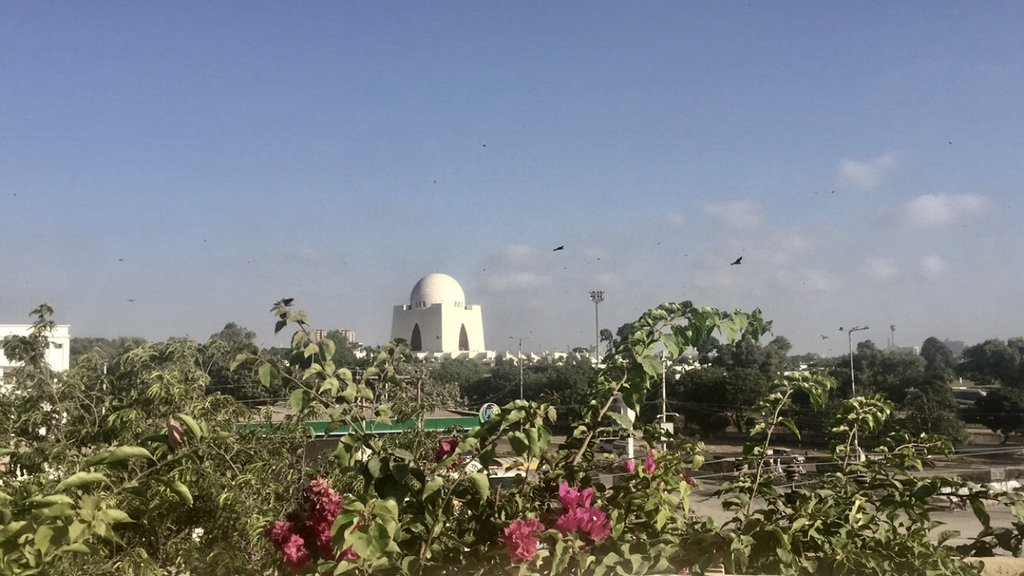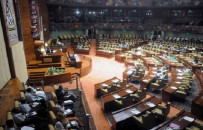Land and ownership: Several saved from eviction after three decades of holding land
MPAs intercede to save thousands from losing land as 30-year lease expires

Representational image. PHOTO: REUTERS
According to sources, although the land had previously been allotted on a 30 year lease for poultry farming and agricultural purposes, the acute housing crisis in the city had led several leaseholders to also build homes and settle on the allotted lands. With the lease due to expire at the start of this year and the government unable to renew the tenure following a Supreme Court ban, droves of people stood at the risk of losing their land after three decades of ownership.
However, upon the intercession of Pakistan People’s Party (PPP)’s elected representatives from Malir district, a decision to not cancel the allotment was reached by the Department of Land Utilisation (LU), saving the leaseholders from losing their land. As per PPP representatives, evicting land owners would have created resentment among the people as well as the supporters of the party, so instead, the cooperation of Sindh Chief Minister Syed Murad Ali Shah was sought to rather cancel the Rubkari and let the allotment remain.
According to Malir district deputy commissioner Shahzad Fazal Abbasi, Rubkari refers to an intimation letter which informs the people concerned that their request for the renewal of leases will be considered once the Supreme Court permits it. While talking to The Express Tribune, an official at the LU department said that ordering the cancellation of Rubkari was necessary for the department.
 Karachi. PHOTO: EXPRESS
Karachi. PHOTO: EXPRESS“Technically, the issuance of Rubkari in the first place means that the apex court will eventually lift the ban. However, the department cannot prematurely decide on if and when that will be,” he explained.
“Withdrawing allotments or acquiring the leased out land would have proven to be a complicated task for the government as well, as most of this land is being utilised for residential purposes by the leaseholders. Thus PPP representatives from Malir district instead persuaded the CM against the cancellation of these allotments,” the source further revealed.
A PPP MPA from Malir, Sajid Jokhio, told The Express Tribune that CM Shah had agreed to grant an extension to old allotments. According to him, the chief minister gave this assurance at a meeting with the party’s elected representatives from Malir district. “The chief minister has also issued the necessary directives to the LU department on the issue,” he added.
Why Malir
The Sindh government has been allotting thousands of acres of government land throughout the province on 30-year leases at different times in the past. The land has mostly gone to people close to the ruling party and those close to bureaucrats for utilisation as agriculture and farming land.
Most of this falls in Malir district. A reason for this allotment in the district, which borders Thatta district on one side and Jamshoro district on another, was the vast vacant fertile land which would prove optimal for agricultural purposes.
According to Jokhio, around 15,000 acres of land had been allotted in Malir on a 30-year lease. However, people holding the land had been utilising it for various purposes, which the signed lease did not mention. In a letter issued to the deputy commissioner on December 11, 2018, the LU secretary had clearly mentioned that some of the land provided for agricultural and poultry farming was being utilised for property business. “In some cases allottees are involved in the sale/purchase of the 30-year lease, which is illegal and causes billions of rupees in loss to the national exchequer by occupying and raising construction over the land,” the LU letter had mentioned.
Hence, following the Supreme Court’s order, the LU department had to cancel the allotment of over 7,701 acres of land for non-utilisation in December 2018, some 5,741 acres of which was in Malir.
Published in The Express Tribune, January 26th, 2020.



















COMMENTS
Comments are moderated and generally will be posted if they are on-topic and not abusive.
For more information, please see our Comments FAQ